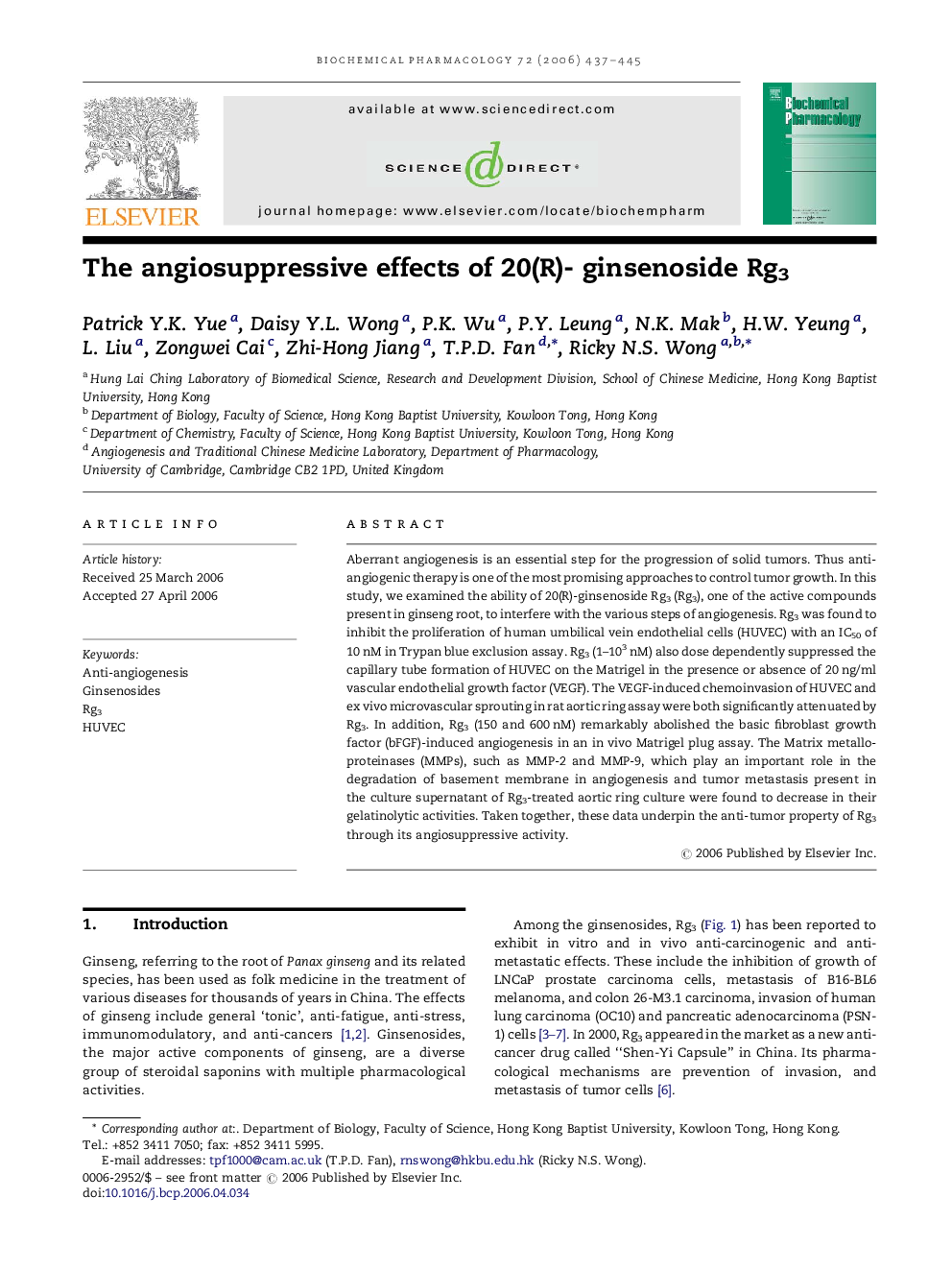| Article ID | Journal | Published Year | Pages | File Type |
|---|---|---|---|---|
| 2515432 | Biochemical Pharmacology | 2006 | 9 Pages |
Aberrant angiogenesis is an essential step for the progression of solid tumors. Thus anti-angiogenic therapy is one of the most promising approaches to control tumor growth. In this study, we examined the ability of 20(R)-ginsenoside Rg3 (Rg3), one of the active compounds present in ginseng root, to interfere with the various steps of angiogenesis. Rg3 was found to inhibit the proliferation of human umbilical vein endothelial cells (HUVEC) with an IC50 of 10 nM in Trypan blue exclusion assay. Rg3 (1–103 nM) also dose dependently suppressed the capillary tube formation of HUVEC on the Matrigel in the presence or absence of 20 ng/ml vascular endothelial growth factor (VEGF). The VEGF-induced chemoinvasion of HUVEC and ex vivo microvascular sprouting in rat aortic ring assay were both significantly attenuated by Rg3. In addition, Rg3 (150 and 600 nM) remarkably abolished the basic fibroblast growth factor (bFGF)-induced angiogenesis in an in vivo Matrigel plug assay. The Matrix metalloproteinases (MMPs), such as MMP-2 and MMP-9, which play an important role in the degradation of basement membrane in angiogenesis and tumor metastasis present in the culture supernatant of Rg3-treated aortic ring culture were found to decrease in their gelatinolytic activities. Taken together, these data underpin the anti-tumor property of Rg3 through its angiosuppressive activity.
